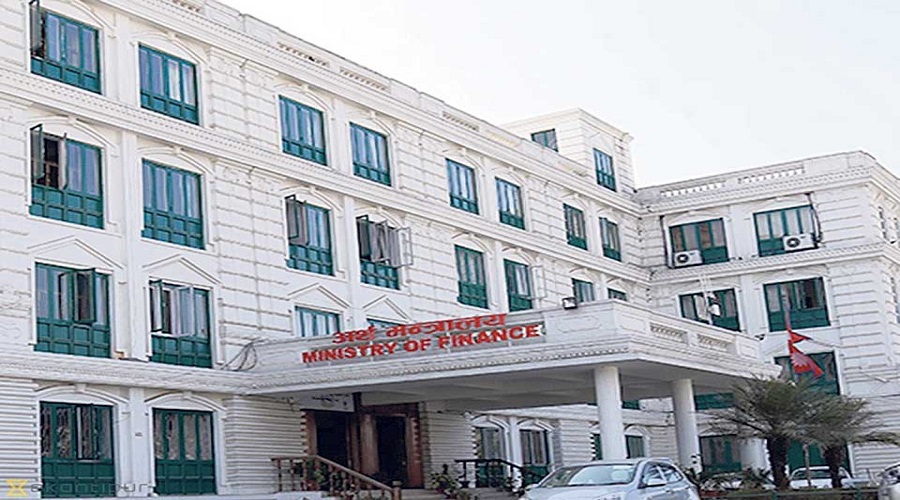KATHMANDU: The Ministry of Finance has prepared an action plan for the implementation of policy priorities and minimum programs announced earlier. The Council of Ministers meeting held on January 4 gave time to each ministry to prepare an action plan for the implementation of policy priorities and minimum programs. An action plan has been prepared accordingly.
Bringing efficiency in revenue collection, making the revenue system more progressive, maintaining business stability while changing revenue rates, and controlling revenue leakage are mentioned in the action plan.
Similarly, formulating financial policy and monetary policy so as to maintain economic stability in the country, making necessary decisions related to cost reduction, identifying incomplete and stalled projects seen in the past, and arranging resources on the basis of need and reasonableness if proposals are received from related agencies with necessary plans for their operation, foreign investment It is mentioned in the action plan to manage the upcoming ups and downs, to start the process of hedging services.
In the action plan, it is mentioned that there will be no changes in foreign exchange, revenue policy, government subsidy, bank loan policy. According to the ministry, there is also an action plan to make necessary improvements based on the suggestions received from the self-evaluation report and other reports regarding the prevention of financial investment in money laundering and terrorist activities.
In the next five years, it is mentioned in the action plan to prepare the base for double-digit economic growth, to maintain policy coordination between the three levels of government, to review the customs tariff, and to study to bring the closed government institutions back into operation.
Similarly, policy, structural and procedural reforms in the insurance sector, reforms in securities laws, and making the secondary market of securities and related structures more transparent and competitive are also included in the action plan. The ministry has said that it will implement policies and programs such as putting the barter market and its infrastructure into operation, assisting small and medium-sized companies in the mobilization of capital, and improving the financial sector.
It has been committed in the sense that the budget allocated for transformational and national plans will not be shortchanged, funds allocated for transformational and national pride projects will not be transferred to other programs and programs will not be amended.
It is also mentioned in the action plan that the internal revenue department and the customs department will mobilize revenue according to the target, and make policy reforms for revenue mobilization according to the target.
Similarly, the Ministry of Finance has said that by taking the private sector into confidence, it will prepare and implement a plan to solve the problems currently seen in the economy, import substitution and export promotion. Anand Kafle, the spokesperson of the ministry, asserted that these action plans will be implemented effectively and will be reviewed periodically.
The high-level political mechanism announced the government’s policy priorities and minimum program on 25th January 2079.
In which the decline in Nepal’s overall industrial production and business sector, shrinking liquidity in the financial sector, high interest rates, increasing trade deficit, low capital expenditure, declining revenue collection, pressure on foreign exchange reserves and decline in the capital market, etc., have to be addressed in a harmonious manner of industrial, financial and monetary policy. It was mentioned that the economy will be made dynamic immediately by implementing it.

